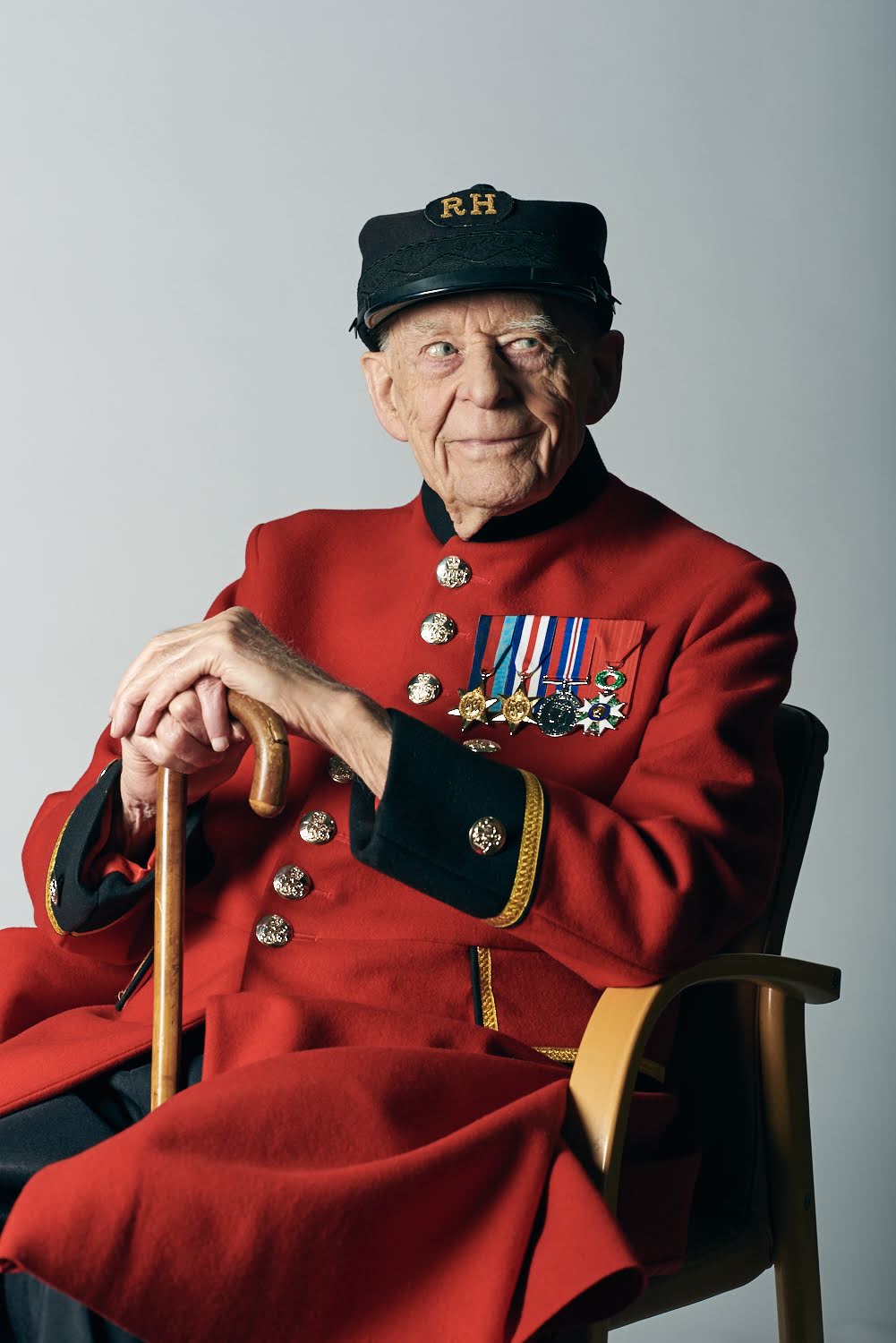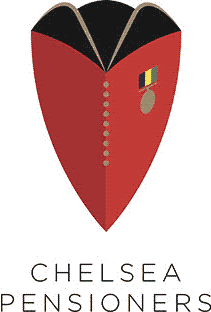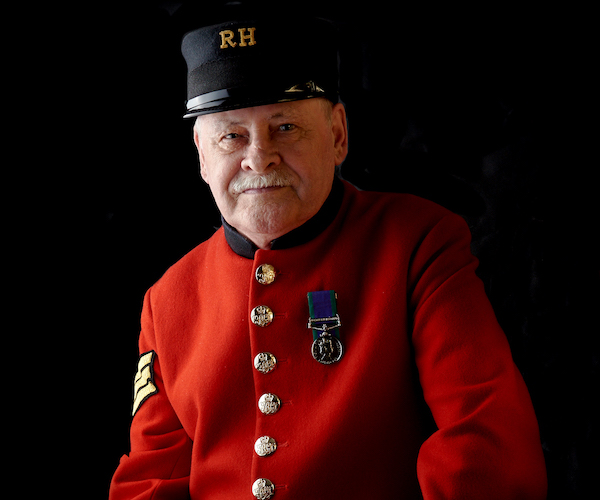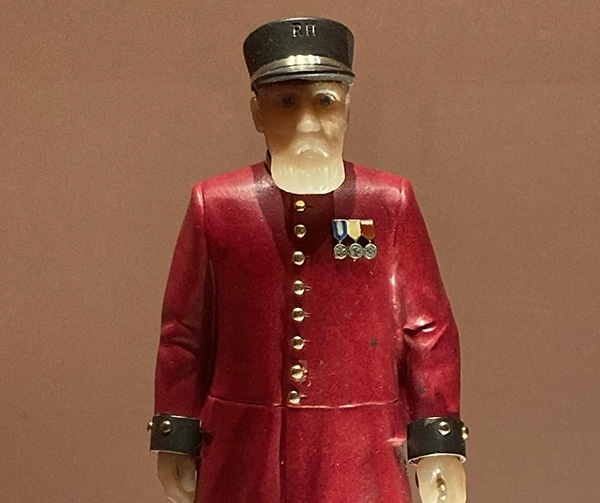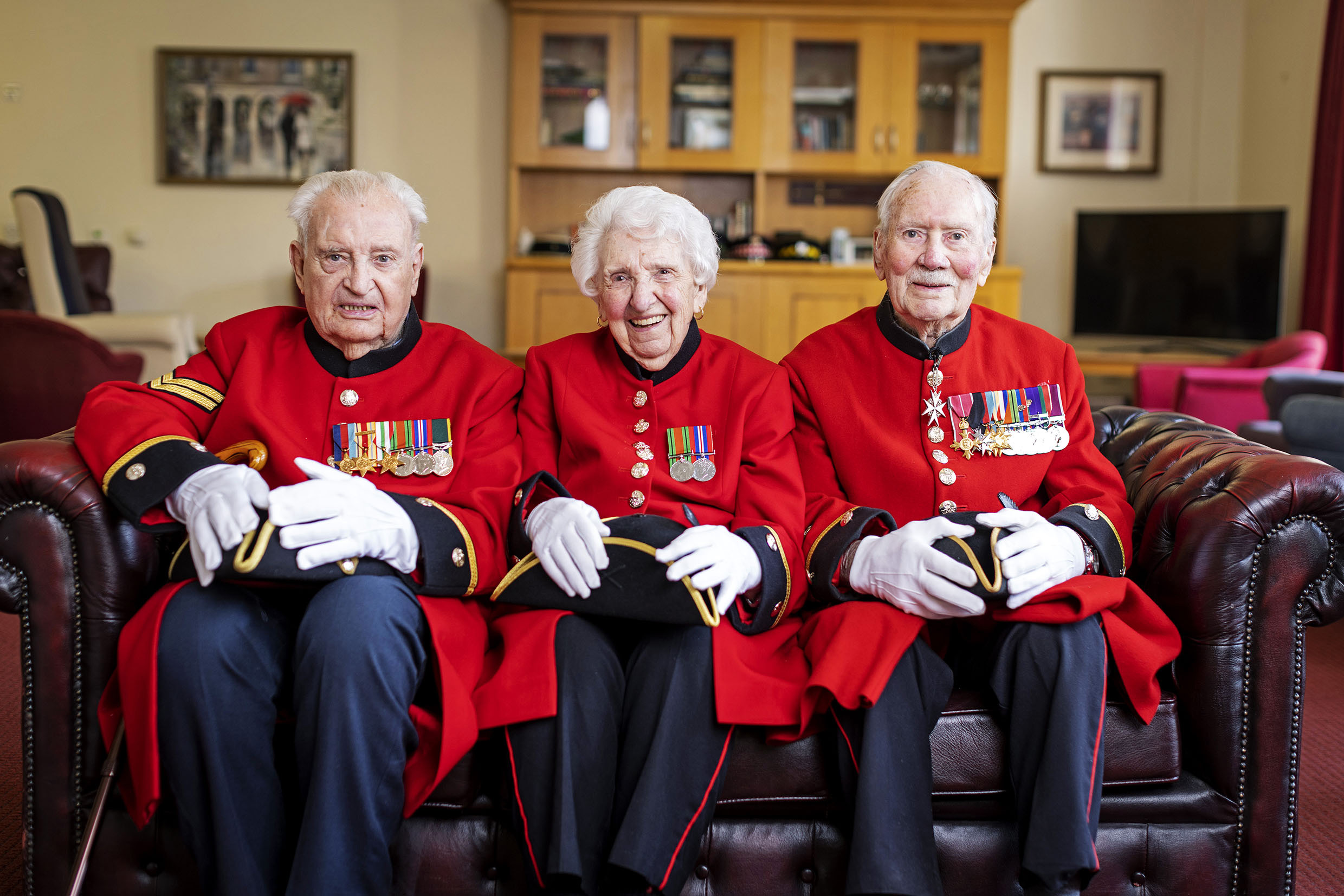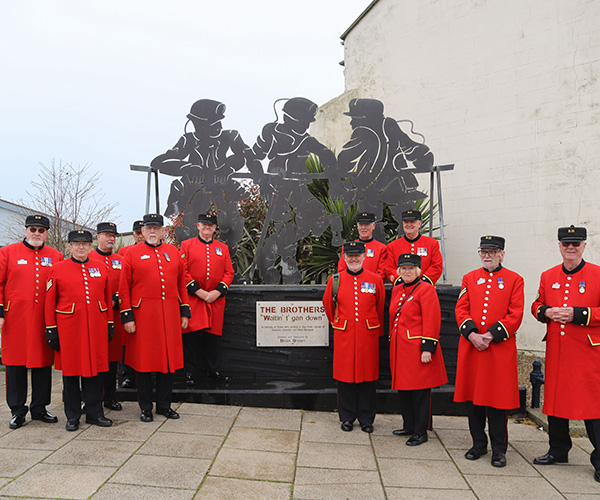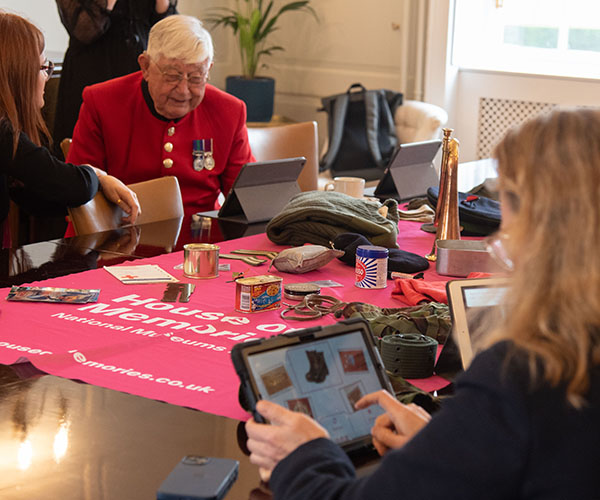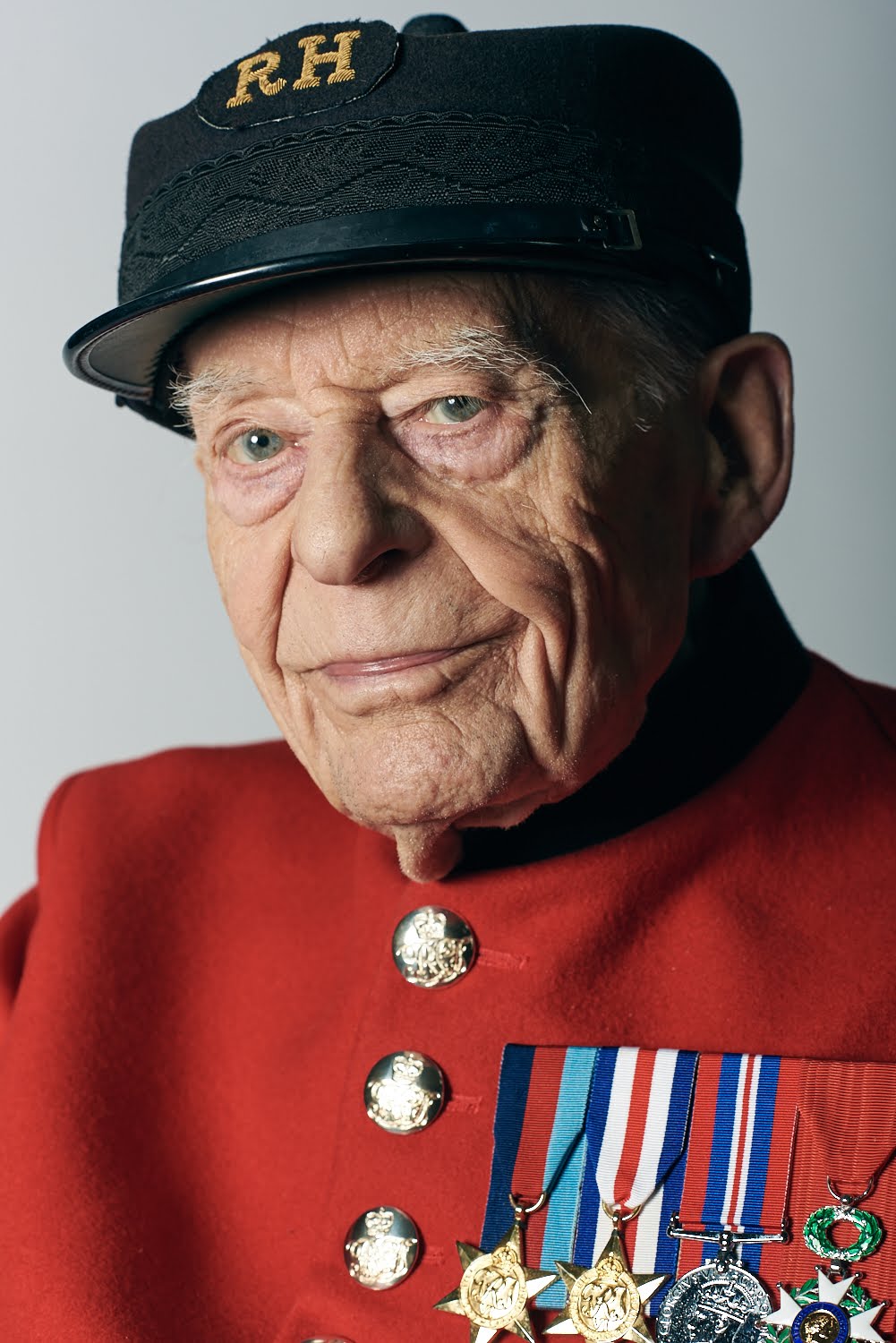
Ernie Boyden has been a Chelsea Pensioner for over 20 years, where he says he gets ‘remarkable attention’. He describes himself as having ‘a young brain’ which he keeps occupied through interests including historical research and painting. Many of his works are displayed in his room, alongside quotations that inspire him.
Ernie Boyden was born on the Stockwell Road in Brixton, where his father had a milliner’s shop. After it went into liquidation, the family moved to a tenement building.
Despite his difficult circumstances, Ernie could read and write before he started to go to the local church school at the age of five.
Later, the family moved to North London:
“We were poor, but we weren’t dirt poor – we always had proper food. But there were slums near us, it was awful. We didn’t have any help from the government.”
Ernie had the run of “wonderful Hampstead Heath” – until he was called up at the age of 18 in 1943.
Building skills in preparation for D-Day
Ernie says that he didn’t question fighting for his country:
“We didn’t really think a lot about it when we were called up. It was a different country then. We were at the end of Empire, but didn’t realise it. We were all very patriotic. I wanted to join the Navy, but my father said it was too dangerous. Mind you, I lost lots of my schoolfriends in bomber command.”
He was sent to Sheffield, for training:
“We were with the King’s Own Yorkshire Light Infantry – they were superb people. The sergeant I had fought in the Spanish Civil War on the side of the socialists. I did six weeks General Service Corps, which was infantry training. And we had ABCA, the Army Bureau for Current Affairs, where we were taught about politics and other topics, which was very interesting.”
From there, Ernie moved on to the Royal Artillery Signals training unit, which was located in a holiday camp, in the beautiful Welsh countryside at Rhyll, where he learned about radio telephony, as well as how to ride motorcycles and drive vehicles. After a short time at another training regiment in Alford, Lincolnshire, Ernie was transferred to the 4thRegiment Royal Horse Artillery:
“They were a very elite regiment, who’d just come back from the desert – they were there all through the desert campaign. They were all regulars, apart from a few of us conscripts. We did training in Salisbury Plain and then in Roxburghshire in Scotland for firing guns, and then transit camps. After that, we moved from Stoke-by-Nayland, in a beautiful part of Constable country, to Southend, where we had our vehicles waterproofed for the move to Normandy. Just prior to D-Day, we went to Tilbury and got on a Liberty ship – a mass-produced American-made ship – to sail for Normandy.”
Normandy and beyond
Ernie remembers sailing through the straits of Dover on D-Day, and when they reached Normandy, three days later, the beaches were quiet:
“All the fuss had finished. The Germans had retreated”
Ernie’s job was Observation Post signaller:
“You need to have an observer near the front to observe where you’re firing guns. In the old days, they used to use semaphore, then they used Morse code, and we used radio telephony. So, we’d be on the radio, communicating to the battery and regiment where to fire the guns.”
Their first destination was Colombelles, a steel works:
“The Germans had got to the other side of the canal and they were using the chimneys as observation posts. Remarkably, one of our gunnery officers managed to fire a gun so accurately he actually knocked one of the chimneys out. “
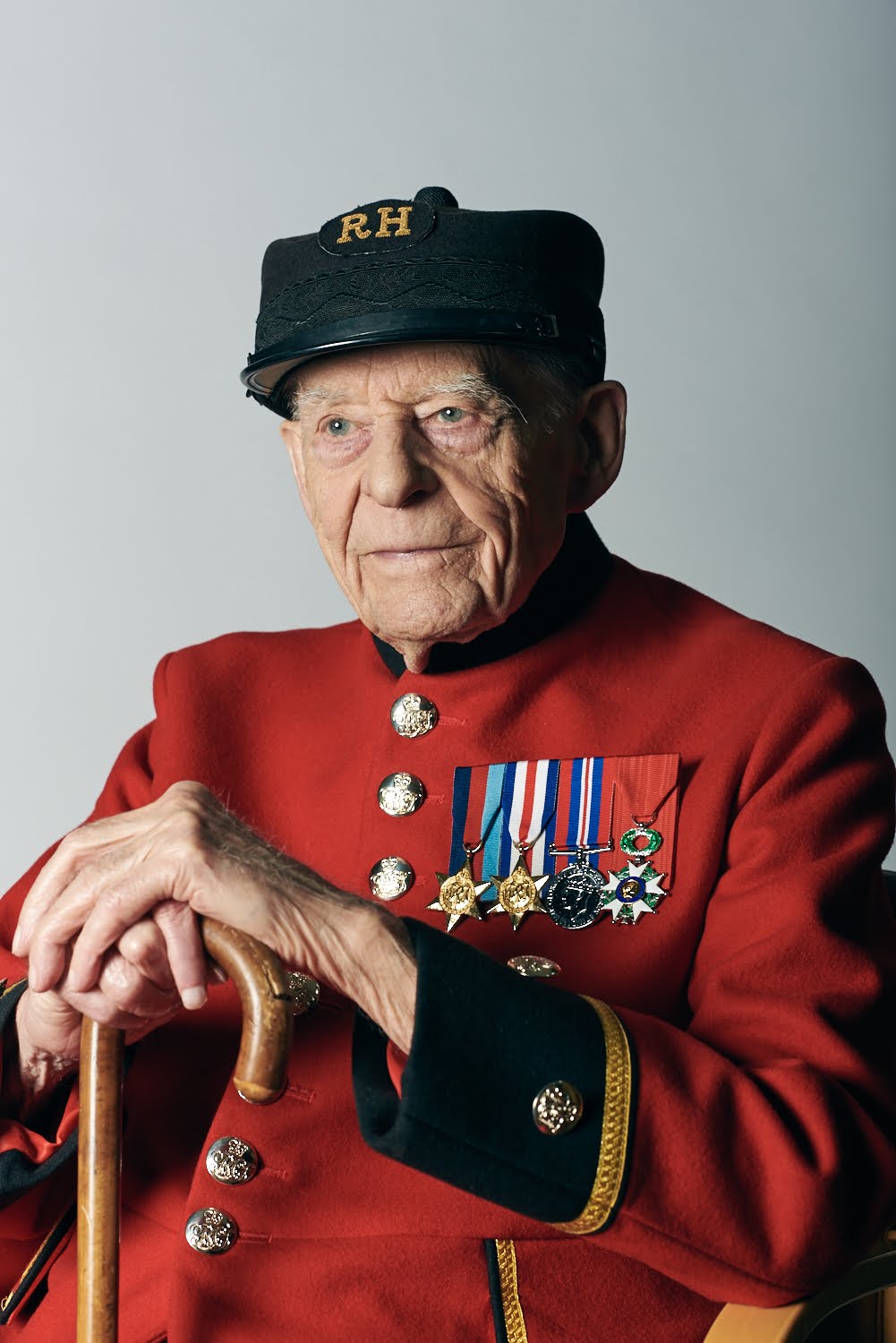
On 25 June, Ernie and his fellow soldiers took part in Operation Epsom:
“The object was to encircle Caen and take Hill 112 and also Carpiquet Aerodrome. We couldn’t take Carpiquet – the Canadian infantry took it eventually – because the German Panzer divisions were superior to our tank divisions.”
He explains how their plans were thwarted:
“On the 29thJune we were sent out late at night to repel an incoming Panzer Leha division who were coming in with accompanying infantry and firing over the top of us. We were in an American half track – which has wheels at the front and tracks at the rear – and we were caught in a ditch and couldn’t move. So, we had to bail out and the four of us ran into a wood. I got hit by a Bren gun – a British infantry weapon. It was about half past ten at night and they thought we were Germans attacking them. And that was when I was hit in the arm. It was a ‘through and through wound’ which severed the median nerve, so now I can’t use my hand completely. That was the end of my Army career.“
The impact of war
Ernie says that, at the time, he wasn’t aware of the significance of the Normandy landings:
“You’re just 19. You’re excited and do silly things – and you don’t realise what’s going on. I remember in the cemetery there – called Jerusalem – there was a 16-year-old boy who was killed. That’s how sad it is. Ordinary people don’t want to go to war.
It was horrible. I was a young lad, expecting an active life, and it’s just gone like that. Finished. Diminished. I had a bad time mentally and physically. Eventually I recovered, but it’s life-changing and there was no support then. You got a pittance of a pension. It was a sad time. If there hadn’t been a war, I would have learned a useful trade. I might have been a dress designer, or something like that – my father was a designer-cutter. I was bad-tempered, mentally unstable, just a mess. They call it Post Traumatic Stress Disorder now – but not then! It was ‘get on with it’. We didn’t have any help at all. I just drifted, until eventually, I joined the civil service.”
Looking back
Today, Ernie tries to put the past behind him and ‘inhabit the moment’, but he did return to Normandy in 1996:
“I went back on my own and I walked quite a way to Carpiquet aerodrome, which we couldn’t take at the time, and I asked permission to go into the control tower. They were quite happy about it, so I could do something we couldn’t do in the war, which was rather interesting to me.”
